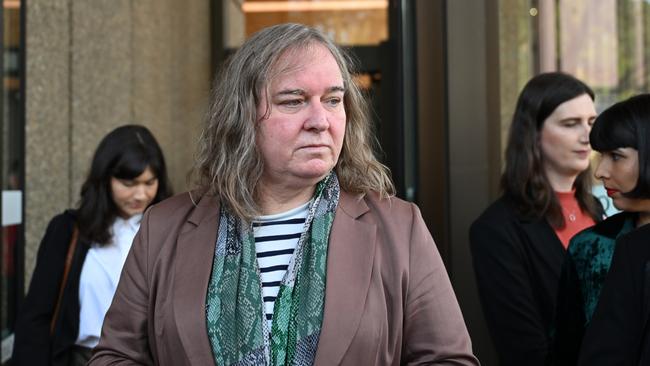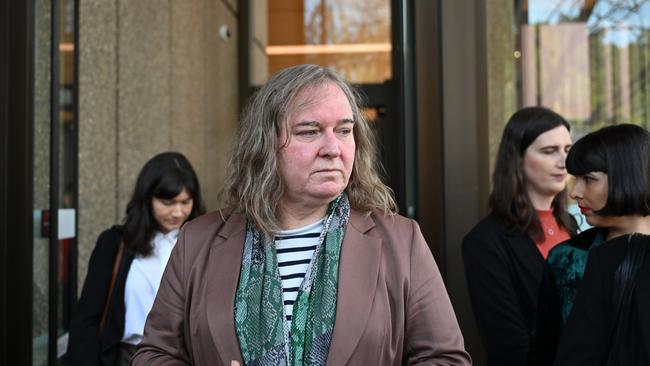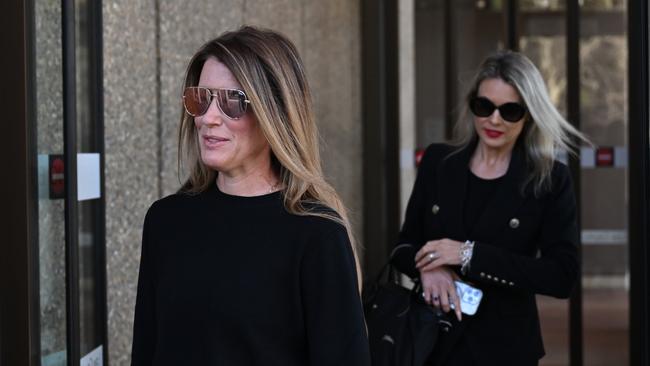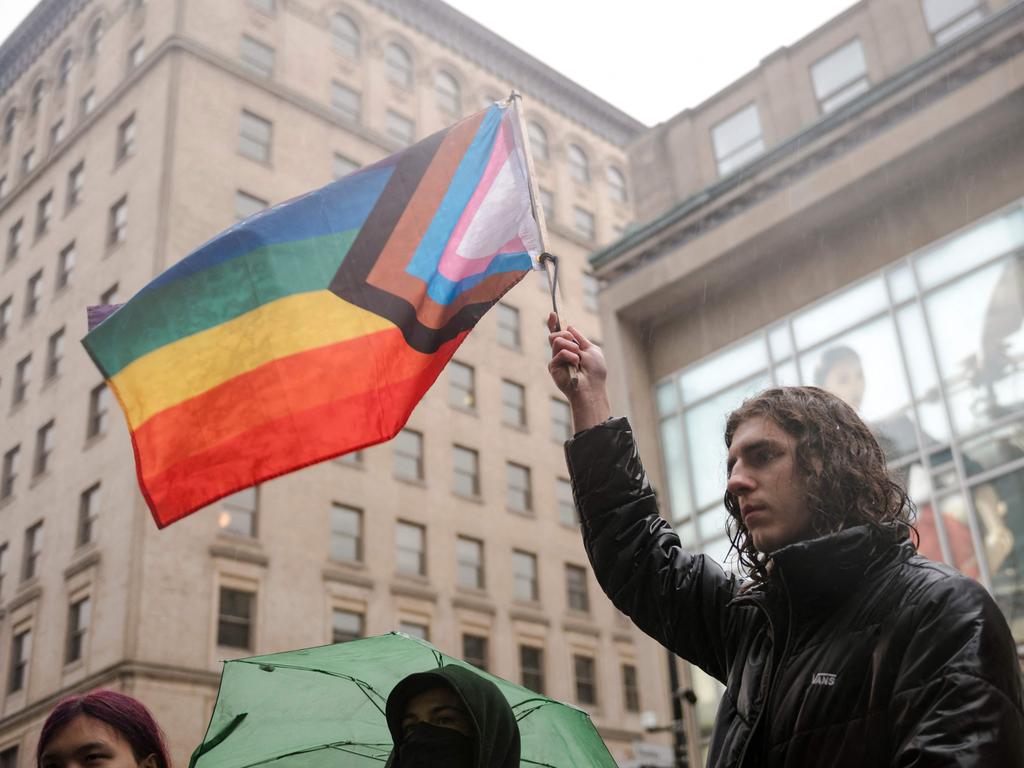Transgender woman Roxanne Tickle wins novel gender discrimination case
Justice Bromwich also found that ‘sex is changeable’ and non-binary as experts discuss the legal implications of the finding of discrimination against transgender woman Roxanne Tickle.

A transgender woman has won a landmark ruling against a women’s-only social media app after a judge found her exclusion from the app amounted to indirect discrimination, in what lawyers say could have widespread implications for the workplace.
Transgender woman Roxanne Tickle sued Giggle for Girls and its owner Sall Grover for excluding her from the app, claiming unlawful discrimination under the Sex Discrimination Act.
In his ruling on Friday, Federal Court Justice Robert Bromwich found that “sex is changeable” and non-binary, saying the “concept of sex has broadened over the 30 years since the SDA”.
He found that Ms Grover had indirectly, but not directly, discriminated against Ms Tickle when she removed her from the app because she did not look sufficiently female, and ordered her to pay the applicant $10,000, as well as her legal costs.
Monash University Faculty of Law professor Paula Gerber welcomed the judgment, saying it was now “clear cut that you cannot have spaces designated as women-only, where what you mean is cisgender women-only”.
Ms Tickle underwent gender-affirming surgery in 2019 and is now designated as female on her Queensland birth certificate.
She was accepted into the app in February 2021 after an analysis of a “selfie” by Giggle’s third-party artificial intelligence tool but later blocked when Ms Grover surveyed the image herself.

Lawyers disappointed by the polarising judgment said discrimination law no longer offered women the protection it was once legislated to guarantee.
“It’s clear now that discrimination laws intended to protect women are now preventing them from having safe spaces to meet,” Feminist Legal Clinic principal solicitor Anna Kerr said.
“We had hoped common sense would prevail and the judge could have relied upon section 7B of the SDA to find Tickle’s exclusion to be reasonable in the circumstances. It will be impossible to effectively exclude any males from female spaces if they claim to be women.”
Other legal experts said the judgment was the first clear public statement of what was already in the legislation.
“Sex is what people say their sex is, based on a combination of their appearance, biology and lifestyle,” University of Sydney emeritus professor Simon Rice said. “It made it clear that this is the law of the land. If that causes people discomfort then the answer lies with parliament and amendments.”
Harmers Workplace Lawyers executive counsel Amy Zhang said employers and service providers should be “careful” not to unintentionally discriminate, including through unconscious bias, against transgender people in the workplace, and said litigation as a result of the judgment could put businesses at further risk.

Justice Bromwich described indirect discrimination is the imposition of a condition, requirement or practice that is likely to disadvantage a person relative to another person who has a different gender identity.
“Definitely indirect discrimination is an area that hasn’t been given much attention and employers are not particular aware of the risks. So, be as careful as possible as part of the recruitment process ... whether it’s unconscious bias, or imposing particular requirements or conditions that might be protected under the law,” Ms Zhang said.
Commonly-raised questions around whether transgender women should be excluded from a women’s 100m race or allowed in a transgender change room will still need to be tested in a court.
Expelled independent Liberal MP Moira Deeming said the onus “should not be on women and girls to prove in courts the reasonableness of why they don’t want any particular man in a change room or toilet or sports competition ... In that case, the law has been corrupted, we have no rights. It’s not just about an online app, this applies to all spaces including female changing rooms at schools.”
Ms Grover took to X following the judgment to say that “unfortunately, we got the judgement we anticipated”. “The fight for women’s rights continues.”
She would not confirm to The Australian if she would appeal.
Justice Bromwich did not order she give a public apology as Ms Tickle had asked, acknowledging she “adheres to sincerely held beliefs” and it would be given “through clenched teeth”.
Ms Tickle said in a statement she was “pleased by the outcome of my case, and I hope it is healing for trans and gender diverse people”. “The ruling shows that all women are protected from discrimination.
“I brought my case to show trans people that you can be brave, and you can stand up for yourself. I know that I can now get on with the rest of my life and have a coffee down the road with my friends, play hockey with my team and put this horribleness behind me.”
The case was the first time a case alleging gender identity discrimination has been heard by the Federal Court following changes to the Sex Discrimination Act in 2013, which made it unlawful to discriminate against a person on the basis of sexual orientation, gender identity or intersex status.
National LGBTIQ+ group Equality Australia said the SDA was amended in 2013 for the purpose of protecting trans and gender diverse people from the community. “Justice Bromwich has correctly and sensibly interpreted the law to ensure it does not exclude marginalised people who are in need of protection,” chief executive Anna Brown said.






